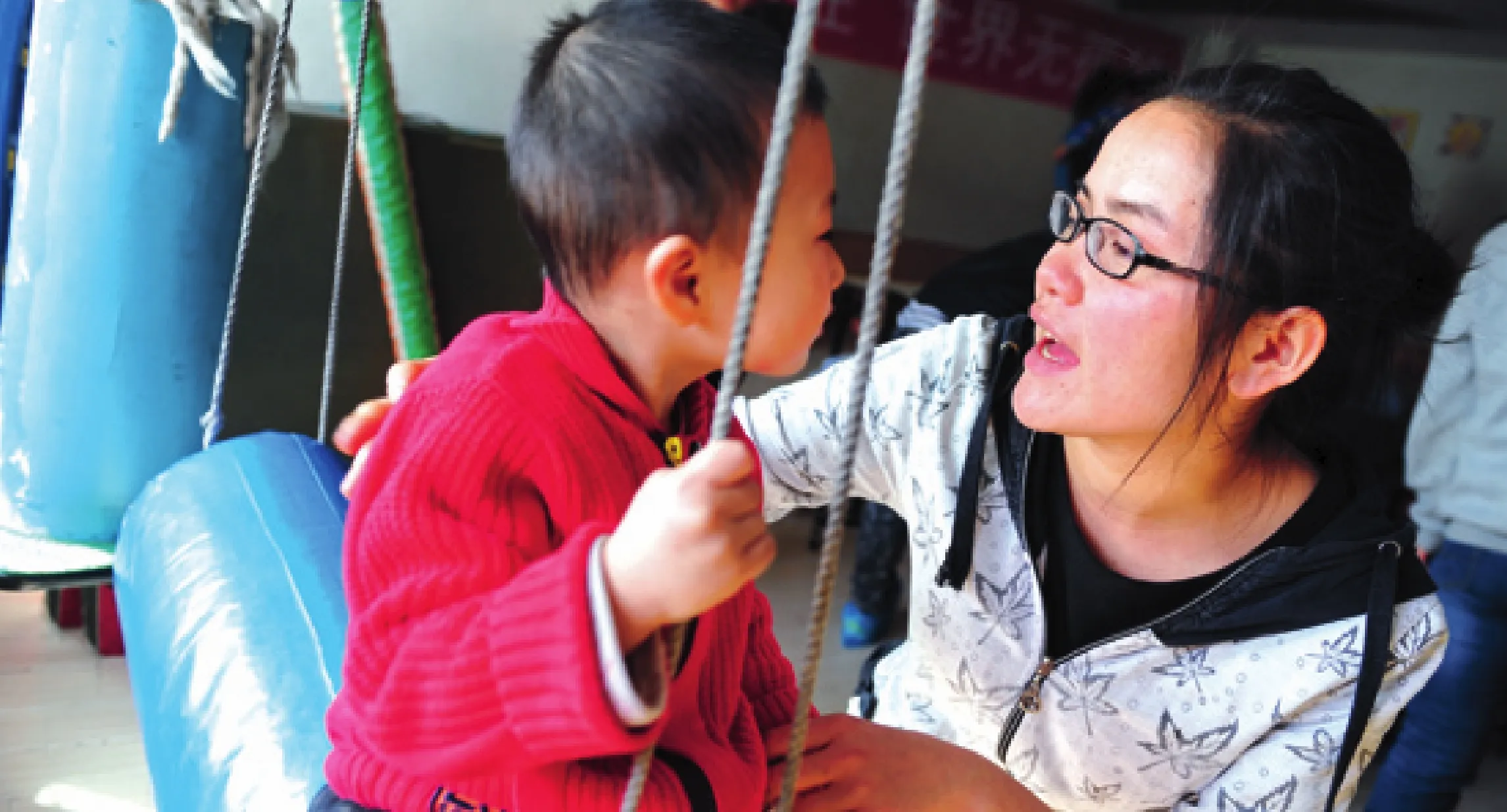Springtime For NGOs
2013-12-06ByWangHairong
By Wang Hairong
Government relaxes registration restrictions for social organizations
Non-government organizations (NGOs)will encounter less red tape while providing public services in China. On March 10, the State Council, China’s cabinet,announced its decision to loosen registration requirements for NGOs as part of sweeping reforms to place rational limits on government intervention in civil affairs.
Industrial associations, chambers of commerce, charities, community service organizations, and organizations involved in science and technology fields can directly register with civil affairs authorities without prior examination or approval, said Ma Kai, then Secretary General of the State Council, when unveiling a plan on the State Council’s institutional reform and transformation of government functions to this year’s session of the National People’s Congress(NPC), the country’s top legislature.
But the establishment of a social organization regarding politics, legal issues and religion is still subject to prior government examination and approval, as are overseas NGOs applying to open representative offices in China, according to the plan.
The plan acknowledged that the requirements for establishing social organizations are too high, and even some NGOs tend to operate in a bureaucratic way like government departments.
“The current management mechanism is no longer suitable for the standardized development of social organizations,” Ma said.
In the plan, the State Council pledged to let social organizations play a greater role in managing social issues.
On March 14, the NPC adopted the State Council’s plan.
Bigger society
This new effort to remove entry barriers for NGOs is part of the State Council’s “bigger society, smaller government” initiative.
Previously, an NGO had to find a government department or agency to be its supervisory body before it could legally register, according to the 1998 Regulation on Registration and Administration of Social Organizations.
According to the reform plan, the State Council will separate industrial associations and chambers of commerce from administrative departments, as well as introduce a competitive mechanism featuring multiple associations for a single industry, which is believed to boost their independence and vitality.
Priority will be given to the establishment of social organizations in the fields of commerce and science and technology, and those related to public interests and charitable and ruralurban community services, the plan said.
“There is huge potential for NGOs to supplement the government in public services,” said Xue Lan, Dean of the School of Public Policy and Management at Tsinghua University.
The government should set rules and act as a judge rather than a player and judge at the same time, according to Xue.
“Previously, the government required NGOs to first have a supervisory organization out of concern that civil affairs authorities were not capable of managing these highly diverse organizations,” said Deng Guosheng, a Tsinghua University professor studying NGOs. “However,this requirement had become a bottleneck hindering the development of NGOs.”
Many government departments are reluctant to shoulder the responsibility as the supervising agency of NGOs. As a result, many non-public charitable organizations have registered as corporations or operated without registration.
Beijing Stars and Rain, founded in 1993, is dedicated to helping autistic children in China.Data on its website show that it has helped over 6,000 autistic children and their families through unique parent-training courses. Despite the achievements, it couldn’t go through the NGO registration procedure because it failed to find a supervisor meeting government requirements.
More than 3 million NGOs in China are not officially recognized, estimated Yu Keping,Director of the Center for Chinese Government Innovations at Peking University and DeputyDirector of the Central Compilation and Translation Bureau, a leading think tank of the ruling Communist Party of China.

(Source: Ministry of Civil Affairs)

LOVE GIVING: Li Mei, a worker with an NGO dedicated to helping autistic children in Lanzhou, northwest China’s Gansu Province, plays with a kid with the developmental disorder on March 28
But Tao Chuanjin, a Beijing Normal University professor specializing in non-profit organizations, said that most of these 3 million unregistered NGOs are affiliated to government organizations, and thus have no intention or need to register as independent social organizations.
Tao said that those NGOs that do have difficulty in registering are those without official backing. “Since these grassroots NGOs do not have legal status, it is difficult for them to get financial support and to survive,” he added.
Another problem with the registration requirement is that for NGOs that have managed to find supervisory agencies and registered, the supervisory agencies often meddle with NGOs’operations and even make decisions for them,according to Kang Xiaoguang, Director of the Non-Profit Organization Research Center at Renmin University of China.
In 2008, Shenzhen City in southern Guangdong Province waived the “supervisory agency” registration requirement for NGOs in the fields of commerce, social welfare and charity. Similar waivers were piloted in 19 provinciallevel regions in following years, reported Beijing Times.
In the second half of 2011, the Ministry of Civil Affairs expanded the waiver from trial regions to the rest of the county. Since then,NGOs in the fields of charity, social welfare and social services are allowed to register directly with civil affairs departments without first finding a supervisory agency, said Minister of Civil Affairs Li Liguo.
Now, the State Council has added industrial associations, chambers of commerce and organizations in science and technology fields to the list of NGOs that can register directly.
Supervision and support
In recent years, the number of NGOs has been growing fast in China. The country had a total of 492,000 NGOs in 2012, an increase of more than 70 percent from 2004, according to a statistical report released by the Ministry of Civil Affairs in January. Foundations are the fastest growing type of NGO, whose number increased from 892 in 2004 to 2,961 in 2012.
Despite the impressive number, many NGOs are still weak in management and not transparent in their operations. Some, including the Red Cross Society of China, have been mired in scandal.
Public confidence in NGOs is still not very high. For instance, 61 percent of the public were unsatisfied with the transparency level of charities, according to the 2012 China Charity Transparency Report published by China Charity and Donation Information Center on January 5.
Although NGO registration procedures have been simplified, the problems hindering their development cannot be solved immediately,Tao said. He called on NGOs to improve their capacity and credibility.
To promote NGOs’ healthy development,the Ministry of Civil Affairs is going to step up supervision of NGOs, Minister Li said at a press conference held on March 13.
In addition to revising relevant administrative regulations so as to monitor NGOs’ funds and activities, he said that measures should also be taken to promote NGOs’ transparency and self-discipline, and a public information platform should be built to facilitate public oversight.
Besides supervising NGOs, the government has also boosted the role of social organizations by procuring more services delivered by them.
In recent years, many local governments have been purchasing services delivered by NGOs. The Beijing Municipal Government began to purchase social services from NGOs in 2010.From 2010 to 2012, the city spent 200 million yuan ($32.18 million) on financing 1,029 social service projects carried out by NGOs, according to Beijing Social Service Commission.
This year, the city planned to finance 500 social service projects with 80 million yuan($12.87 million), 60 percent more than last year’s spending, said the commission.
In addition, in 2012, the Central Government also earmarked 200 million yuan to support NGOs, according to Beijing Times.Last year, the Central Government provided financial support to 377 projects that directly benefited 1.85 million people and hosted more than 120 training sessions that trained a total of 17,700 persons.
Li Hongchun, Director of the Development and Reform Commission of Guangdong Province, said that the government should be transparent when selecting which NGOs to support. “The government should purchase services from whichever NGOs that can provide good services,” Li said. ■
